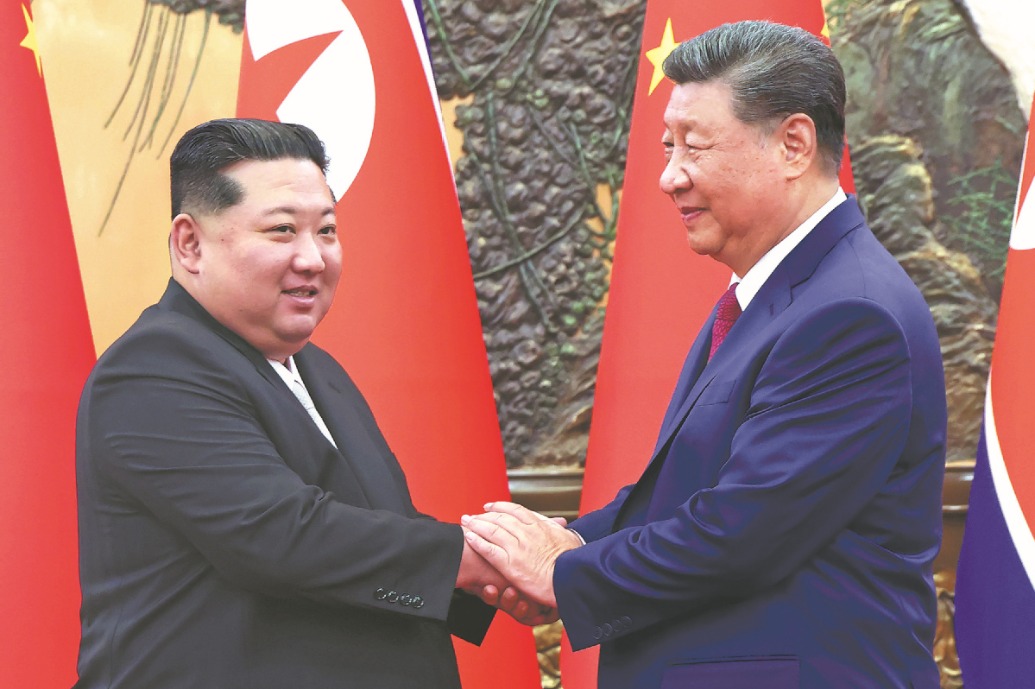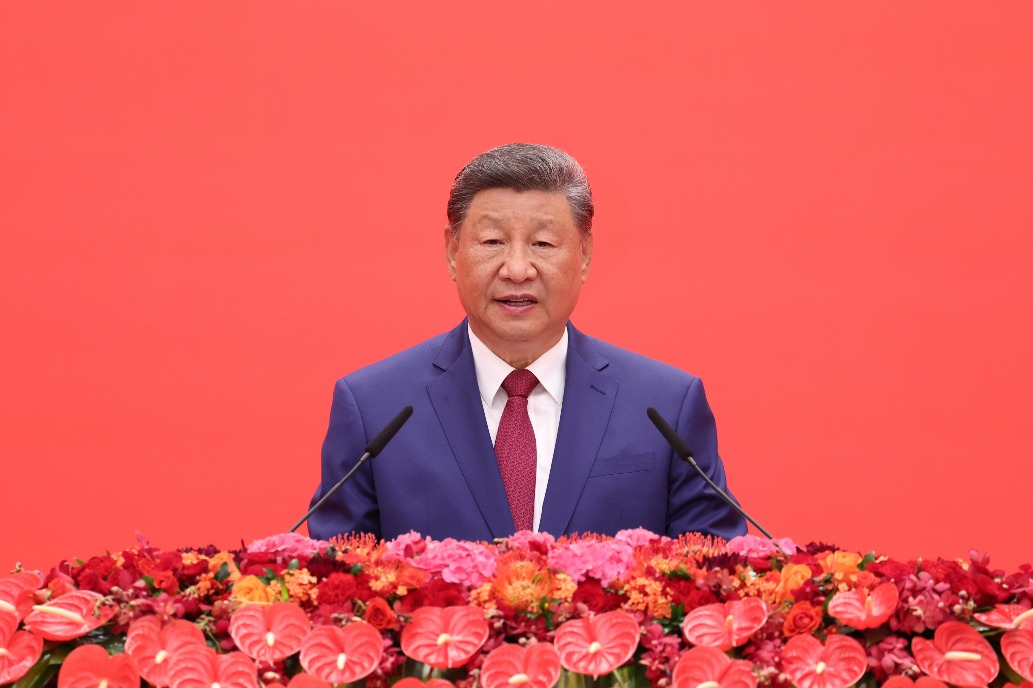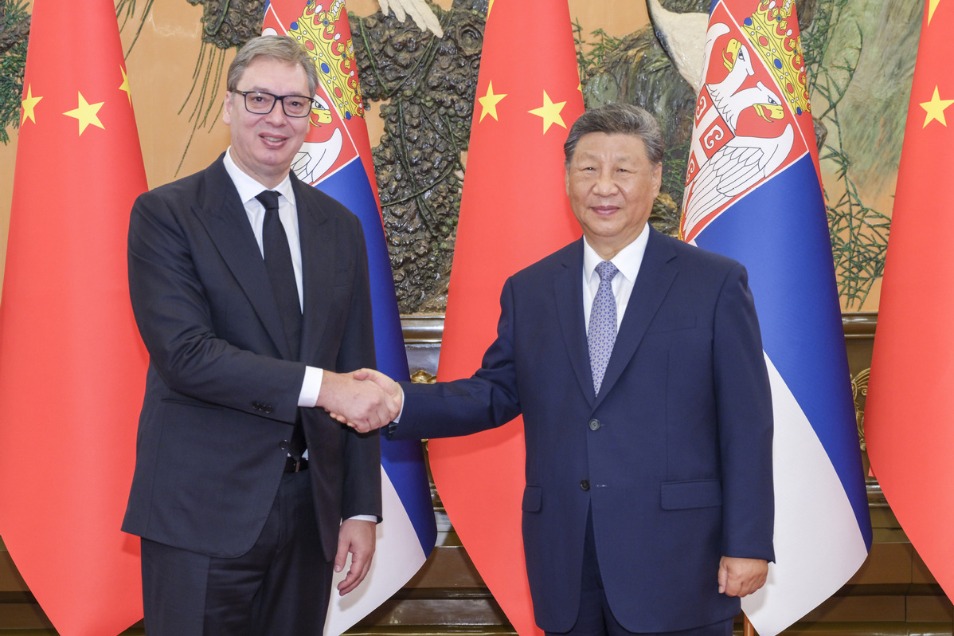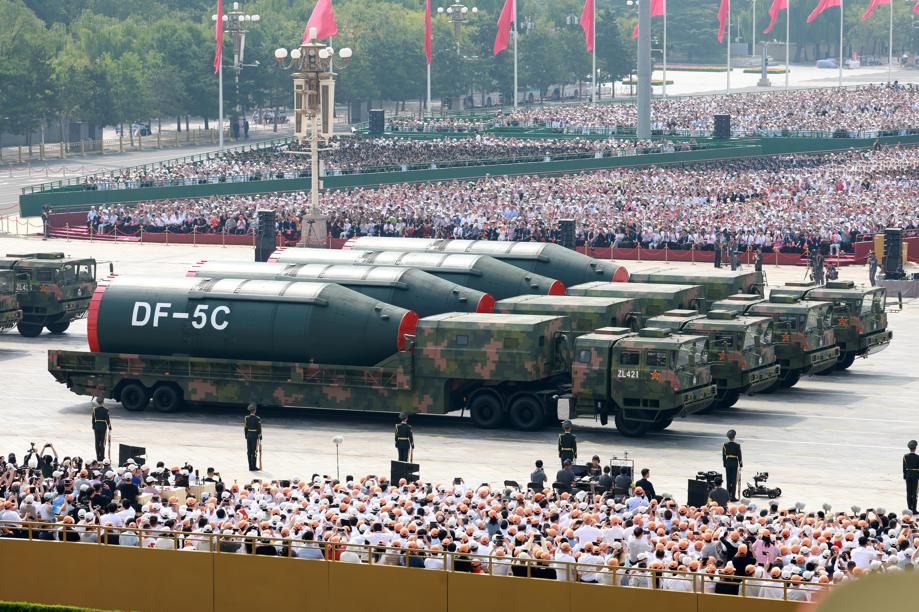Breaking the tech barrier
How the Global South can mitigate the negative impact of Western-driven 'technology decoupling'


Global political dynamics in the past few years call for more integration between China and Africa to fend off a new onslaught from the West, particularly from the new US administration. President Donald Trump seems bent on alienating the developing world, with a raft of orders that include cutting aid and pulling out of the World Health Organization, thus reversing the immense gains from globalization that had helped underdeveloped countries kick off efforts to narrow the gap with the developed world.
The Global South, particularly regions such as Africa, faces significant challenges due to Western "technological decoupling", which refers to the separation of technological ecosystems between the West and other regions, particularly China. This decoupling can lead to reduced access to technology, investment and markets, hindering development. However, there are several strategies that the Global South can adopt to mitigate these negative impacts.
Among these is diversification of partnerships. Global South countries must diversify their technological partnerships beyond the West, using the same principles that China has used to become a global leader in modernization and technology. They must also engage other emerging economies and reduce dependency on any single source of technology and investment.
Global South countries must start increasing investment in local innovation, which encourages domestic startups and tech companies to build a self-sustaining ecosystem. Governments can provide funding, training and resources to nurture homegrown talent and innovation. This can also be aided by enabling environments that stimulate growth in the desired sectors.
There is need for firm regional cooperation to create regional technology hubs that share resources and develop joint initiatives that enhance their collective technological capabilities. It is equally important to establish clear and supportive policy frameworks that encourage foreign investment while protecting local interests. This will help attract diverse technological partners and foster a conducive environment for innovation.
China has already been investing in digital infrastructure in Africa in areas that include telecommunications, with companies such as Huawei and ZTE playing a crucial role in expanding telecommunications networks in Africa. Countries must therefore improve connectivity and facilitate access to information, e-commerce, and digital services, fostering innovation. Projects such as the smart city initiative in Kenya, which aims to integrate technology into urban planning, and improving efficiency and quality of life must be emulated and replicated elsewhere. Such initiatives can create new economic opportunities in sectors such as construction, technology and services. China has also invested in training programs for African youth in digital skills, which can enhance the local workforce's capabilities and drive innovation in various sectors.
In this light, China-Africa partnerships can play a pivotal role in bridging the digital divide and accelerating industrial development. Investments in broadband and mobile networks can enhance access to digital services, enabling more people to participate in the digital economy.
Financing technology is expensive but establishing joint ventures between Chinese and African companies can lead to the development of new products and services tailored to the African market, creating jobs and stimulating economic growth. These collaborations can also facilitate technology transfer, allowing African countries to adopt and adapt technologies that suit their local contexts, thus fostering industrial growth.
However, success models outside the Western narrative and technology standards come at a cost. We have witnessed this happening recently with the demonization of DeepSeek, a Chinese success story. The artificial intelligence-driven startup focusing on data analysis has garnered global attention for its innovative solutions but has faced scrutiny and skepticism in the US, where such success stories are tagged as threats to US jobs and security, reflecting a broader trend of viewing foreign technological advancements with suspicion.
The US government has consistently targeted Huawei, a Chinese tech giant, portraying it as a security threat despite its significant contributions to global telecommunications, including in Africa. This has created a narrative that demonizes successful foreign companies, impacting their operations and partnerships.
Similarly, the Belt and Road Initiative has been criticized in the US as a means for China to exert influence over developing countries. However, many African nations have benefited from the infrastructure investments made under this initiative.
In the context of "America First "policies and, lately, Trumpism, successful initiatives, particularly those involving foreign partnerships, have often been demonized. While the Global South faces challenges from Western technological decoupling, strategic partnerships, particularly with China, and South-South collaboration are imperative for innovation and economic growth. It allows countries to develop modernization strategies that are culturally relevant and aligned with their unique social, economic and political contexts. By collaborating, they can share best practices, lessons learned, and innovative solutions that have been effective in similar contexts, rather than relying on Western solutions that may not be applicable.
In uniting, South-South countries should set their goals on reducing their dependency on Western nations and institutions. This translates into either greater economic autonomy or the ability to negotiate better terms in trade and investment, fostering a more equitable global economic system. All this cannot be done without strengthening political ties and solidarity, enabling them to present a united front in international forums. In the course of achieving the sustainable development goals for example, these countries can pool resources, share knowledge, and implement strategies that are tailored to their specific challenges, thus enhancing their chances of success.
By collaboration of such kind, South-South countries can build resilience against global economic shocks, climate change and other external pressures. Focusing on modernization on their own terms empowers South-South countries to take control of their development narratives. This agency is crucial for fostering a sense of ownership and responsibility toward their development paths.

The author is managing editor of Africa News 24. The author contributed this article to China Watch, a think tank powered by China Daily. The views do not necessarily reflect those of China Daily.
Contact the editor at editor@chinawatch.cn.


































